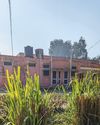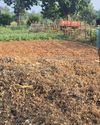
THE CLIMATE-FOCUSSED trade measures introduced by the US and European countries in recent months mark a huge reversal of their approach to global trade governance. In the past three decades, these rich countries have often joined forces through the World Trade Organization (WTO) and tried to knock down trade barriers and encourage countries to treat one another's products equally to boost global commerce and, in their estimation, to bring about stability of the global economy.
To understand this dynamic, you have to view how the free trade regime came about, says Sunita Narain, director-general of the Centre for Science and Environment (CSE), Delhi. In the 1990s, the rich world found that it would be cheaper for its industries to set up shop in parts of the world, like in China, where labour was cheap, labour conditions were weak and environmental safeguards could be ignored. As a result, the rich world "exported" their emissions to the balance sheet of "other" countries and continued to consume goods at cheaper rates, while not reducing their domestic emissions, Narain explains.
According to Sanjay Reddy, chair of the Department of Economics at the New School for Social Research, US, measures like CBAM are being imposed in an already uneven context, due to the prior failure of rich countries to make good on their promises to make green technologies more accessible to developing countries through extending knowledge or providing financing. One way to implement such compensation would be, suggests Reddy, to operationalise cbam but to remit all of the taxes collected to exporting countries, which could then choose to transfer some of these funds to affected industries and firms as grants to aid in the implementation of clean technologies.
Bu hikaye Down To Earth dergisinin February 16, 2023 sayısından alınmıştır.
Start your 7-day Magzter GOLD free trial to access thousands of curated premium stories, and 9,000+ magazines and newspapers.
Already a subscriber ? Giriş Yap
Bu hikaye Down To Earth dergisinin February 16, 2023 sayısından alınmıştır.
Start your 7-day Magzter GOLD free trial to access thousands of curated premium stories, and 9,000+ magazines and newspapers.
Already a subscriber? Giriş Yap

TERMITE TRAP
A common tall grass variety provides a chemical-free option to control termites, highlights the need for mainstreaming local ecological knowledge

CLIMATE'S UNSOLICITED PAYOUT
Rising weather extremes is destabilising the insurance industry, driving up premium prices and pushing insurers out of high-risk markets. The crisis is also spurring re-invention of insurance sector.

NOTHING PSEUDO ABOUT IT
The fibre-rich banana pseudo-stem is a treasure trove of minerals and health benefits

Organic move
After 10,000 farmers in Dantewada district secured Chhattisgarh's first organic certification, the entire district now gears up to transition fully to organic farming

No more a rarity
What has caused widespread outbreak of the rare Guillain-Barré syndrome cases from seven states of the country?

DeepSeek AI model is a sobering idea for India
The Chinese artificial intelligence breakthrough reveals how far behind India is in the race for technological prowess

'Fragile terrain not the cause of tunnel collapse but an excuse'
In November 2023, the under-construction Silkyara Bend-Barkot tunnel in Uttarakhand collapsed, trapping 41 workers under the rubble. The rescue operation in the 4.5 km tunnel lasted 17 days and involved multiple teams. Australian geologist ARNOLD DIX, who is also the president of Switzerland-based International Tunnelling and Underground Space Association, as well as an engineer, a barrister and a farmer, assisted in the mission at India's request. Dix has now written a book on the incident. In an interview with ADITYA MISRA, Dix says the mishap was a failure to adapt construction methods to the rock conditions encountered. Excerpts:

BUDGET SQUEEZE
Poised to woo the middle class and tame fiscal deficit, Union Budget 2025-26 cuts corners on key welfare schemes, offers little for climate adaptation and decarbonisation

Decoded script
Genomelndia project creates genomic sequence database of 10,000 Indians, moving a step forward in disease detection and treatment

Introduce layers in poverty measurement
This is with reference to the article \"Convenience of poverty lines\" (16-31 January, 2025). Poverty is not like atmospheric pressure, which can be scaled down with high-precision instruments. It is a matter of deprivation. Poverty is also highly misunderstood. At one extreme, poverty means no food, no clothes, bad health and inadequate shelters; in essence a dearth in common and customary amenities. One can recognise this poverty. But, even if a person's conditions are only a notch above this level, their situation slides through the slick fingers of all the measurement of figures and wielders of statistics.